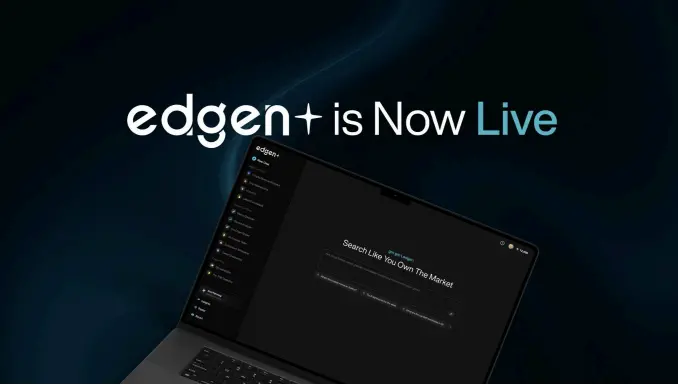Viewpoint: Venture capital is still abundant, and project founders and token issuance service providers are still making money
Original source: wassielawyer X account
Author: wassielawyer
Compilation: Deep Tide TechFlow
Some thoughts on "first-round venture capital" and why the most profitable business in Web3 right now is providing services to teams that issue tokens.
While the performance of altcoins has been disappointing, the venture capital market remains very active. As a consultant and investor, I can clearly see that there is still a significant amount of capital flowing.
An interesting phenomenon in recent weeks is the increase in fundraising demand.
Despite the poor performance of the large TGE in June 2024, and many teams still planning to conduct TGEs in the third quarter of this year, the venture capital market remains very active.
For seed-stage companies, it is still relatively easy to raise funds at high valuations, despite significant concessions made regarding cliff periods and investor unlock schedules.
Although it is evident that no one is buying venture capital projects, many participants are still betting that retail investors will buy their projects in a few months.
I can only describe this phenomenon as a failure of market structure.
Participants in these still-hot venture capital rounds include not only large venture capital firms but also almost anyone with over $500,000. They either added capital under their Web3 aliases, called themselves angel investors or KOLs, or participated in $20,000 allocations with $2,000 checks.
These investors are optimistic about the field but do not want to receive poor ETH/BTC returns. They also do not want to buy altcoins to become someone else's "exit liquidity," and they believe memecoins are "too risky."
These are "mature retail investors" who have evolved into what I call first-round venture capitalists. These individuals bought altcoins in the last round but are smart enough.
They realize that the design of altcoins in this round is very unfair. However, they may not fully understand the implications of venture capital—they just see the successful venture capital deals from the last round and think it is "free money."
This phenomenon ultimately benefits two types of participants in the Web3 space.
The first type is project founders. The current reality is that no matter how bad your project is, as long as you offer a sufficiently short cliff and vesting period and create a (however tenuous) promise of a fictional retail fool, seed investors will be able to sell, and you will find funding.
If you cannot find funding, lower your valuation, increase the TGE unlock ratio, and shorten the cliff/vesting period until you find funding.
This is indeed very bad for the field.
Dishonest founders will quickly shut down their companies after obtaining funds from seed investors.
Honest founders will see their projects completely destroyed because they must provide garbage token economics to compete for funding.
In any case, investors themselves are also unlikely to see actual returns, as those retail investors they hope will come in are also participating in other meaningless seed round transactions, hoping for someone else to take over.
The second type that benefits from this meta narrative is token issuance service providers.
The real key is to recognize that Web3 is now primarily about issuing tokens. Everything else is a narrative woven to achieve the primary goal of issuing tokens.
So the real profits come from obtaining funds from founders who primarily raise money through first-round venture capital (VC).
There is an obvious selection bias here. Excellent founders/teams are oversubscribed by well-known investors, and these teams usually have some experience.
Weaker founders are supported by first-round venture capital and often cannot benefit from those networks and experiences.
These founders may pay high fees for services such as "token economics consulting," "marketing and GTM," "launchpad services," "KOL management," "legal," "market making," "community management," etc.
Since everyone is issuing tokens, it seems that everyone is using the services of these providers, making it almost a given for any inexperienced founder to follow the "playbook."
But what these founders do not realize is that this "playbook" is neither foolproof nor price transparent. In fact, it can be argued that this "playbook" is largely untested, as many tokens operating under this playbook have yet to face significant investor unlocks.
Many service providers are also doing this for the first time and may sometimes be as confused as the founders, but they just put on a façade until they succeed. After all, if no one knows, who will point out your mistakes?
As a token economics consultant, why not copy and paste a token economics plan and charge 1.5% of the supply and a dollar consulting fee?
As a "marketing and GTM" consultant, why not copy and paste a broad "marketing strategy" from ChatGPT or your previous work?
As a "general legal advisor," why not use completely different transaction documents that you saw during your internship here?
Since service providers are often compensated in dollars and token appreciation, they tend to be the first to get paid in any token project (unless they encounter dishonest founders).
Therefore, while it sounds realistic, the best way to succeed in this meta narrative is:
(a) to become a founder of bad faith,
(b) to try to become a "subject matter expert" for early seed projects.
Randomly investing in risk transactions is unlikely to yield returns, as everyone who entered the Web3 space in mid-2022 is now randomly investing in various seed projects.
Investing in projects no longer automatically equals profit.









